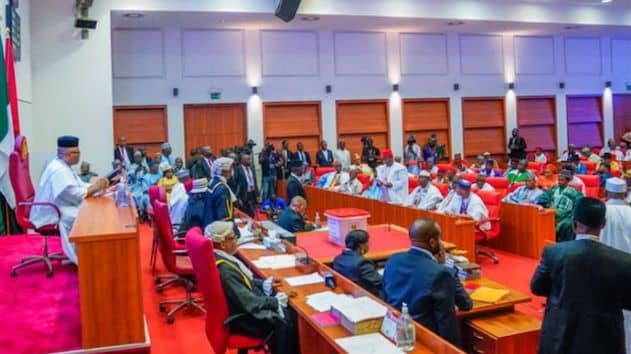By Stella Michael

The Senate Committee on Local Content sought clarification on the utilization of $300 million domiciled in the Bank of Industry (BoI) for manpower training in collaboration with the Industrial Training Fund (ITF), particularly in the oil and gas sectors. Chairman Senator Natasha Akpoti-Uduaghan raised the issue during a meeting with representatives from ITF and BoI in Abuja.
The committee aimed to enhance operational synergy between government agencies to maximize the impact on Nigerian beneficiaries. Akpoti-Uduaghan expressed displeasure with the N10,000-N15,000 stipend paid to students for participating in the Students Industrial Work Experience Scheme (SIWES), which lasts up to six months.
The Committee chairman faulted government agencies, institutions, and private organizations that reject students seeking to undertake their industrial training. She called for greater synergy between organizations and ITF to ensure students are accepted for SIWES. Akpoti-Uduaghan suggested digitizing the SIWES program, listing opportunities on the ITF portal.
The federal lawmaker plans to work with stakeholders to produce a policy or regulation compelling organizations to make provisions for a minimum number of SIWES students. She stressed the importance of joint efforts in promoting local content, particularly in the oil and gas sector, where $300 million is dedicated for Nigerians to access through the Bank of Industry.
The ITF team explained that the agency is self-funding, with a 1% annual payroll from private organizations and government agencies involved in commerce, with a yearly budget of N48 billion. They highlighted their process of working with state governors to select participants for training and empowerment.
The ITF team appealed to the committee to rally support for a new law or regulation compelling government agencies to patronize ITF services for employee training. They showcased various training and empowerment programs, including Skill-Up Artisans (SUPA), Technical Skills Development Project (TSDP), and National Industrial Skills Development Programme (NISDP).
The Bank of Industry representatives clarified that the bank is run by Nigerian funds from the private sector but managed by the government, with an annual project of $617.7 million. They highlighted their success in attracting $5 billion within the last five years and showcased programs like YES-P, GEEP, and iDICE.
Senator Akpoti-Uduaghan called on the Bank of Industry to include physically challenged persons in their programs. She had earlier partnered with CAC to register 2,500 SMEs in Kogi Central, enabling small business owners to access funds like single-digit loans, grants, and government funding.
